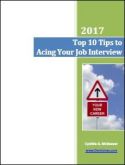The Sales Resume
A sales resume requires special attention. The information throughout the DerrJones website can
be adapted to a variety of disciplines. The advice works, regardless of your area of
expertise. But, if you're a sales professional, there are some additional things you need
to consider when creating a strong resume.
Sales professionals neeed to build in specific metrics in order for their resume to be
credible. You need to consider how the metrics you've been measured by stack up to the
requirements of the job you're applying for. Here's what I mean...
If you've been selling for a small company, working with a $500,000 annual quota, you're
going to find it hard to compete for a position that requires C-suite contacts and a track
record of signing multi-year, multi-million dollar contracts. Paying attention to these metrics,
and applying for positions that are consistent with your track record, will yield
better results.
Follow these guidelines to make sure that you're including the information savvy hiring
managers want to know.
Things to Include in a Sales Resume:
- Annual quota, expressed in dollars. You should provide this information for your most recent
positions. Hopefully, you'll be able to show career progression, with responsibility for larger
quotas as your experience level increased.
- Your achievement, relative to quota - expressed as a percentage. If your track record
has been good, your resume is the place to highlight your results. If you have had difficulty
meeting quotas, I would be silent on this issue. Be prepared, however, for this subject
to come up in an interview!
- Average deal size. What is your target revenue per sale? Prospective employers will
look at this metric in relation to the value of what they're selling. If the discrepancy
is too large between what you've been selling and the value of their product or service,
chances are you won't be called for an interview.
- Average contract term. Are you selling multi-year contracts or is your current
environment more transactional?
- Percentage of your volume coming from new customers vs. existing customers. A good
sales person will be able to provide this information, without having to look it up!
Doing your homework on this point for your sales resume will help prepare you
for the interview!
- Average sales cycle. How long does it take you to close a deal?
- Closing ratios. What percentage of your sales calls result in new business?
- Awards you've received, e.g. President's Club, Chairman's Circle, etc.
There are also some traps you want to avoid as you're putting your sales resume together.
Here are some of the more common ones.
Things to Avoid on a Sales Resume:
- Providing a percent increase in sales without the underlying dollar value.
It's impressive to see a 50% increase in year over year sales UNTIL the hiring
manager finds out that you're working off of a low revenue base.
- Results that are not quantified. Talking about a "significant increase" or
"year over year growth" without actual metrics lacks credibility.
- Spotty award track record. If you were salesperson of the quarter in the Spring of
2003 - and never won another award - you're better off being silent on this achievement.
It begs the question of what happened to your performance in subsequent quarters.
The implication is that your results declined. This is not the picture you want
to paint for your prospective employer!







